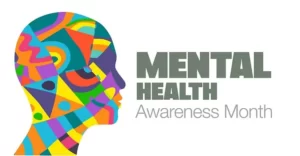Without a specific test to diagnose Pediatric Autoimmune Neuropsychiatric Disorders Associated with Streptococcal Infections (PANDAS), it is critical for parents whose children have experienced a streptococcal infection to be alert to the signs and symptoms that indicate a child is experiencing PANDAS and obtain appropriate treatment. The condition is believed to be caused by an abnormal immune response to a streptococcal infection, such as strep throat or scarlet fever. The working criteria for a diagnosis of PANDAS are:
- Pediatric onset in a patient three years or older.
- Presence of Obsessive-Compulsive Disorder (OCD) or a tic disorder pursuant to the most recent DSM diagnostic criteria.
- Abrupt onset of symptoms in initial presentation or severity.
- Additional neurological abnormalities such as:
- Anxiety: separation anxiety, social anxiety, or generalized anxiety.
- Behavioral changes: irritability, aggression, or emotional lability (rapid mood swings).
- Sleep disturbances: insomnia, nightmares, and bedwetting.
- Motor abnormalities: clumsiness, handwriting changes, or difficulty with coordination.
- Association with a streptococcal infection which can have occurred up to 6-9 months prior.
In the case of children who manifest the first four criteria without a known streptococcal infection should be tested for the presence of elevated strep antibodies since children can develop strep two to three times a year without being diagnosed with the infection due to milder or absence of symptoms.
Distinguishing OCD and Tics Caused By PANDAS
The abrupt onset of the tics and OCD is quite distinct from non-PANDAS manifestations of these disorders. According to the National Institute of Mental Health (NIMH), children with PANDAS seem to have dramatic ups and downs in the severity of these symptoms, which are more extreme than the relatively consistent levels seen in children who do not have PANDAS:
[Children with PANDAS have a very sudden onset or worsening of their symptoms, followed by a slow, gradual improvement. If children with PANDAS get another strep infection, their symptoms suddenly worsen again. The increased symptom severity usually persists for at least several weeks but may last for several months or longer.]
In many instances of PANDAS, the onset of tics or OCD can be pinpointed to a particular day or week, withA sudden explosion of the symptoms. In addition, the symptoms tend to wane or even resolve between these manifestations. Sometimes the onset of tics in kids with PANDAS suggests a newly acquired strep infection before any other symptoms develop.
Treatment of PANDAS
There are a variety of interventions that have been shown to address PANDAS, addressing both the underlying streptococcal infection. Initially, a course of antibiotics such as penicillin and azithromycin or steroidal anti-inflammatory medication (NSAIDs) can be prescribed. If symptoms persist, we can consider a course of steroids, IVIG or plasmapheresis. In some instances, patients have received tonsillectomies or adenoidectomies to reduce the risk of recurrence of the infection. The results of different studies have yet to be conclusive about which of these treatments is preferred. However, the consensus may be to avoid “chasing” flare-ups with revolving treatments and, instead, pursue a steady course of action.
The neuropsychiatric symptoms may require treatment, which can be addressed with the same types of interventions used in conventional occurrences of these disorders. Patients may benefit from antidepressants/antianxiety medications and various behavioral therapies, including collaborating with the family to address specific symptoms such as anxiety and OCD.
Diagnosis and treatment of PANDAS require a careful, holistic approach to the patient, expanding beyond the immediate neuropsychiatric symptoms to ascertain whether a streptococcal infection is the underlying cause of the patient’s disorder. Working with a physician with experience in identifying and distinguishing neuropsychiatric symptoms of PANDAS from conventional, similar disorders will inform treatment and potentially resolve the symptoms.
To learn more about PANDAS and other conditions that affect the brain and body, contact Washington Behavioral Medicine Associates to schedule an appointment to speak with one of our practitioners.
*https://www.cdc.gov/groupastrep/gas-infections-investigation.html


















